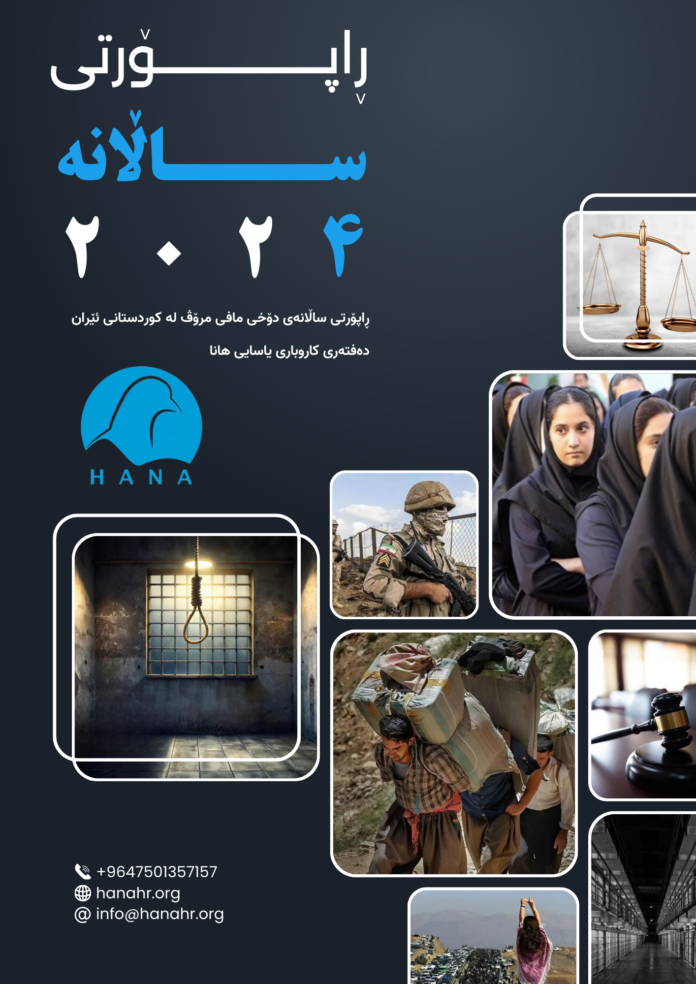Hana Human Rights Organization has released its 2024 Annual Report on the Human Rights Situation in Iranian Kurdistan. The findings indicate a deterioration in human rights conditions across the region, marked by systematic violations perpetrated by the Islamic Republic of Iran. This alarming trend underscores the urgent need for enhanced scrutiny and intervention by the international community and human rights mechanisms.
General Overview:
The report highlights widespread and systemic infringements on civil, political, social, economic, and cultural rights in Kurdish regions. The repression, which intensified following the “Woman, Life, Freedom” uprising, is justified by the authorities under the pretext of national security, further compounding the precarious human rights landscape.
Civil and Political Rights:
The extensive application of the death penalty remains a grave concern, with 124 documented executions, many for offenses that fail to meet the threshold of “most serious crimes” under international human rights law. Violence against Kolbars (border porters) resulted in 41 deaths and 216 injuries, while landmines claimed 10 victims, including 5 fatalities. Arbitrary arrests and enforced disappearances targeted at least 640 Kurdish individuals, with a pervasive lack of judicial accountability or transparency. The right to a fair trial remains systematically violated, with evidence of torture and coerced confessions in cases such as those of Pakhshan Azizi and Wrishe Moradi.
Economic, Social, and Cultural Rights:
Kurdish communities continue to face entrenched discrimination and socio-economic marginalization. Violations include denial of access to education in the Kurdish language, high unemployment, inadequate housing, and the exclusion of Kolbars from legal protections. These systemic disparities underscore a breach of Iran’s obligations under international human rights treaties.
Legislative Developments:
The newly enacted Compulsory Hijab Law imposes severe penalties, including the death sentence, for acts deemed non-compliant with mandatory veiling requirements, fostering systemic abuse and arbitrary enforcement. Reproductive rights have been further undermined by legislation restricting access to contraception and sterilization, disproportionately impacting women and exacerbating health risks. These measures amount to a severe rollback of women’s fundamental rights, particularly in Kurdish areas.
International Obligations and Legal Framework:
Despite being a state party to key human rights treaties, Iran systematically disregards its obligations under international law, exacerbating the exclusion of Kurdish communities from political participation and regional self-governance. Official statements rejecting international human rights norms as “Western values” further illustrate the entrenched resistance to global accountability.
The report calls for immediate and sustained international action to address these egregious human rights violations and to hold the Islamic Republic of Iran accountable for its systematic oppression of the Kurdish population.
For the full report, please download the PDF version here:

